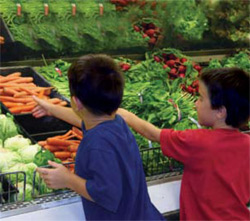Should I involve my child in decision-making? This question, perhaps, has lingered in the minds of many a parent. Popular culture sees decision-making in children differently. This culture insists that parents make decisions for their children; from what they eat and drink, to what they wear, watch, hear and play.
But did you know that decision-making is, in fact, a very important skill for children to learn, regardless of their age?
Your children can gain several benefits from making their own decisions. Decision-making will influence how they behave and get along with others, as well as shape them into the type of adult they become and the life paths they eventually choose. When children make good decisions, they will not only feel good, but also experience a sense of satisfaction and fulfilment because they had made those decisions.
On the other hand, if your children make bad decisions, then they may suffer for it, but also learn from the experience. This can help them make better decisions in the future. So the question is, how can you, as parents, help your children learn decision-making skills?
Teach them the process
Giving your children some decision-making power should be done in stages and is usually based on age, maturity and previous decision-making abilities. It is dangerous to give your child complete freedom to make decisions.
To help your children make decisions, you must first educate them about the decision-making process. It is hard to master decision-making and even adults have not yet perfected this skill. Here are a few ways to help your kids make decisions that are not impulsive and focused on immediate satisfaction.
- Teach them to pause and think before leaping. A few seconds of hesitation can prevent a lot of bad decisions. Catch them in the act when they are about to “jump” without thinking, and stop them. You could also use experiences where lack of pre-thought caused a bad decision and ask them what they could have done differently to avoid such decisions in the future.
- Get them to ask themselves some key questions and evaluate their options. You will want your children to understand their options and decisions; so get them to ask themselves “Why do I want to do this?” and “What are my options?” Children often have different motivations and while they may know that doing something is silly, they may feel peer pressure or other reasons to do it anyway.
- Evaluate the consequences. Get your children to then ask themselves, “What are the consequences of my actions?” or “How much trouble will I get in?” Children need to weigh the risk and benefits of their decision, both in the short and long term.
- Understand their decision. The most important question that children must ask themselves is, “Was my decision in my best interests?” Having these concerns, weighing competing options and making a decision that is to their best interests is the pinnacle of a good decision-making process.
While children will not always make good decisions, they often like to be treated equally and to be in control of certain things. It is up to parents to guide and help their children develop good decision-making skills and grow up to become independent, responsible, and happy adults.






Comments